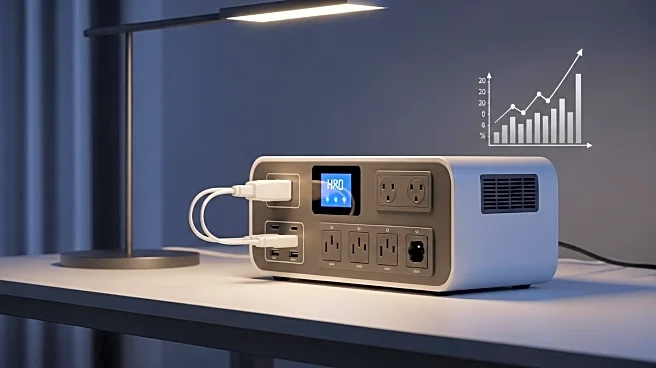What's Happening?
DJI, a company widely recognized for its drones, has expanded its product line to include cameras and portable power stations. Currently, DJI is offering its Power 1000 portable power station at a significant discount on Amazon, reducing the price from $999 to $499. This power station is equipped with a 1024Wh LiFePO4 battery, known for its durability and longevity compared to standard lithium-ion batteries. It provides 2200W of continuous power and can peak at 2600W, making it suitable for powering a variety of devices, from laptops to household appliances. The device is noted for its quiet operation, rated at just 23 decibels, and features multiple charging inputs, including two 140W USB-C and two USB-A ports, as well as two AC ports. It can also be paired with solar panels for off-grid power generation. The design includes an easy-to-read LCD screen and a compact form factor with a carry handle for portability.
Why It's Important?
The significant price reduction of the DJI Power 1000 highlights the growing consumer demand for portable power solutions, especially in the context of increasing reliance on electronic devices and the need for reliable power sources during emergencies or off-grid activities. This move by DJI could disrupt the market, as competitors like Anker, EcoFlow, and Jackery offer similar products at higher prices. The affordability and features of the Power 1000 make it an attractive option for consumers seeking cost-effective and efficient power solutions. This could lead to increased competition in the portable power station market, potentially driving innovation and price adjustments across the industry.
What's Next?
As DJI continues to expand its product offerings beyond drones, the company may further innovate in the portable power sector, potentially introducing new models with enhanced features or greater capacity. The current discount could also prompt competitors to reevaluate their pricing strategies to maintain market share. Additionally, the integration of solar panel compatibility suggests a growing trend towards sustainable energy solutions, which could influence future product developments in the industry.









